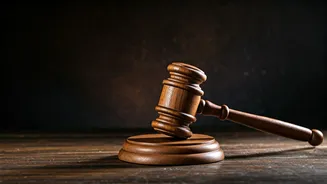The Wrongful Imprisonment
The crux of the matter revolves around a man of Indian descent who, shockingly, endured a 43-year period of unjust imprisonment. This extended incarceration
brings to light critical issues regarding the fairness and accuracy of legal proceedings. The details of the original conviction and the evidence (or lack thereof) that led to his long sentence are vital in understanding the present situation. The case brings into question the checks and balances within the judicial system and raises concerns about the potential for wrongful convictions. This situation is the core reason for the current legal challenges and the subsequent court decision against deportation.
Legal Hurdles Faced
The journey to potentially prevent deportation is packed with legal complexities. This involves navigating the intricate web of immigration laws and challenging the grounds upon which the deportation order was made. The legal team representing the man is probably dealing with several court filings, appeals, and hearings. They will need to successfully prove that his initial conviction was flawed or that extraordinary circumstances warrant a review of the deportation order. This legal battle demonstrates the significant difficulties faced by individuals fighting to remain in the US, especially those dealing with past legal problems.
Court's Intervention Explained
The court's decision to halt the deportation is a critical point in this situation. It signals a recognition of the issues at play and an acknowledgment of the potential injustices. This intervention may be based on various grounds, like the review of the original conviction or the submission of new evidence. The specific reasoning of the court’s decision is significant for understanding its scope and impact. It also sets a precedent for cases with similar circumstances. This order may also provide the individual with an opportunity to appeal the deportation order and present his case in a more detailed manner.
Impact and Ramifications
The repercussions of this decision extend beyond the individual involved. It can spark broader discussions regarding immigration policies and the treatment of immigrants within the US legal system. The case could prompt reviews of past convictions and raise questions about the accuracy of investigations. This case has the potential to influence legal practices, ensuring greater fairness and due diligence. This situation highlights the importance of thorough reviews and the protection of individuals' rights within the judicial system. It serves as a stark reminder of the effects of wrongful convictions and their effect on both the individuals and the legal frameworks involved.












